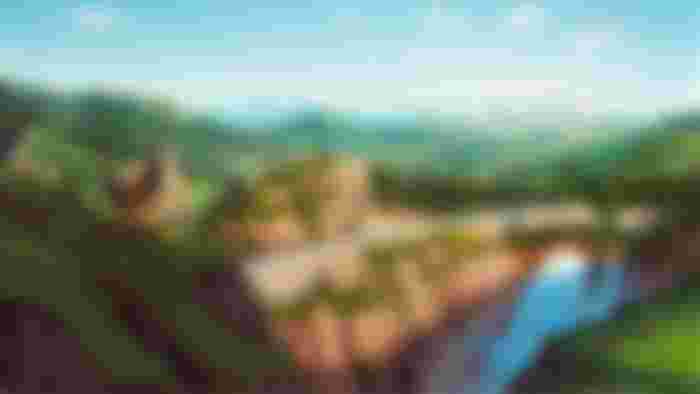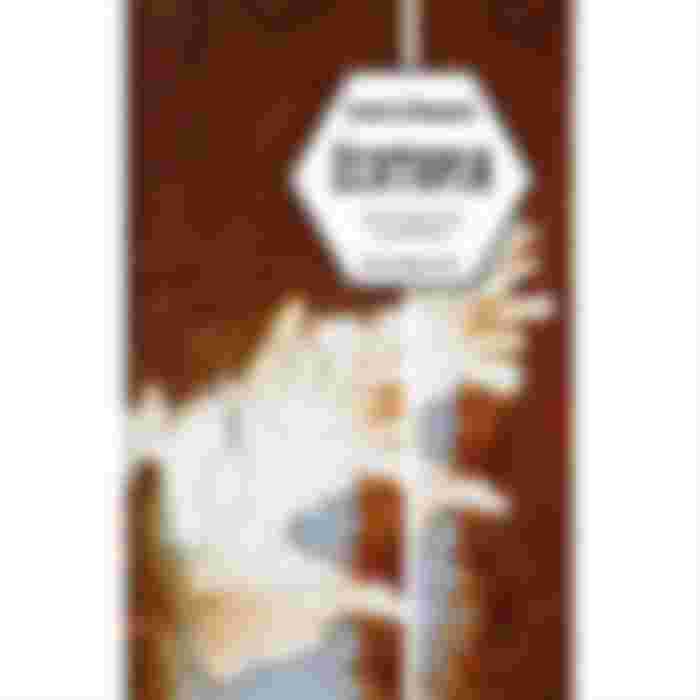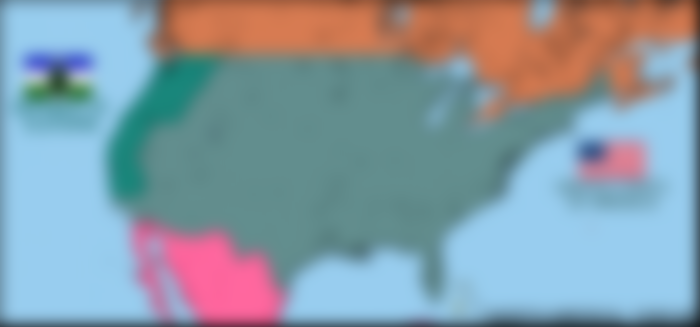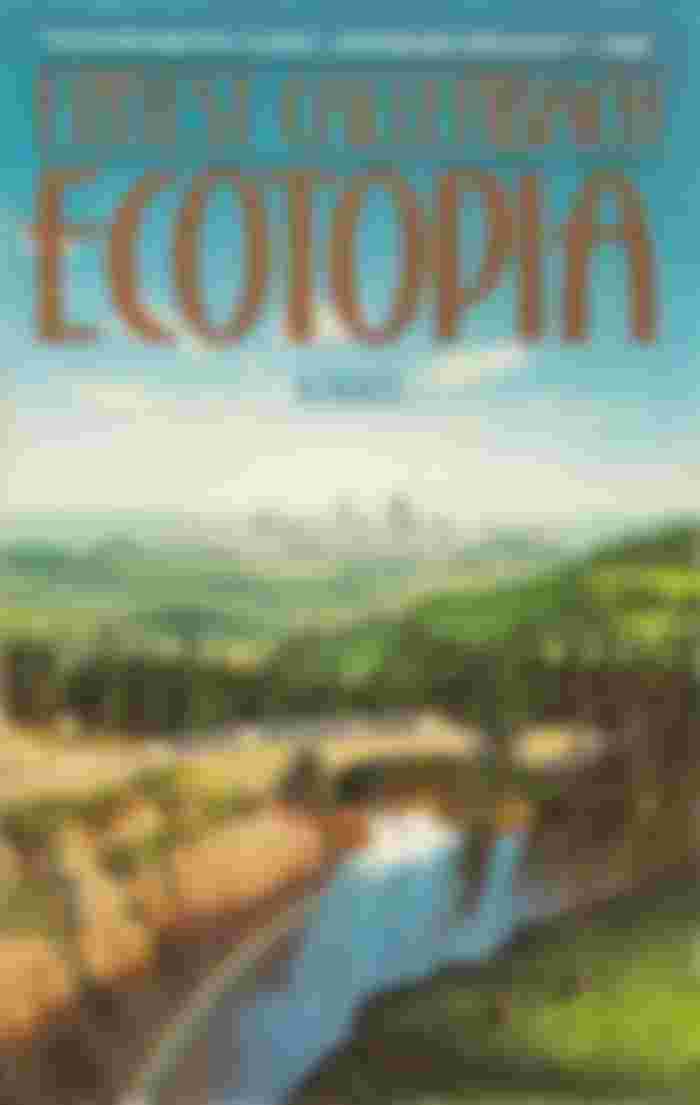
Released in 1975, Ecotopia was quickly integrated by the American counter-culture, until it became a classic and a rare model of utopian science fiction. Ernest Callenbach's novel imagines the foundation of a new nation entirely devoted to building a sustainable way of life, in harmony with nature: zero waste, zero pollution, for a perpetual balance between man and his environment. . Translated at the time by Stock editions, Ecotopia remained confidential in France for a long time. It has been translated again and published since October 4last, published by Rue de l'Eglise. The opportunity to discover an incredibly topical work. Because it is indeed an exciting invitation to cultivate alternative imaginaries and to believe, against all odds, that the world can still avoid collapse .
Imagine a country where all pesticides and chemical fertilizers are banned and where fossil fuels have disappeared. Where all non-recyclable items have been banned and where all industrial precooked food is illegal, where sugar and salt are almost non-existent. Where the scientific committees are finally independent and where industrial lobbying has been eradicated. Where agriculture is entirely organic, where forests are revered. Where streams and flourishing vegetation have invaded the arteries of large cities. Where the lights go out at night and where the Milky Way is dazzling in the heart of metropolises. Where the air is clean, where planes are banned, where the few cars are electric, public transport and self-service bicycles free. Where the universal income is introduced, as well as the 20-hour week,
Secession in the West
In short, a country where capitalism has been defeated, where human beings have stopped poisoning themselves and destroying their environment, the conditions for their own survival included. This is not the combined fantasy of José Bové, Pablo Servigne and Matthieu Ricard but Écotopia , the eponymous country of the novel by American writer Ernest Callenbach, published in 1975 in the United States. A novel available in French since October 4, 2018, thanks to a new translation published by Éditions Rue deéchiquier.
"The book speaks to us about today, it describes things in the process of being realized 50 years later"
“ It's a prophetic book, I don't really know how to explain it. The book tells us about today, it describes things in the process of being achieved 50 years later. It is undoubtedly linked to the Californian culture of Ernest Callenbach, it is from there that the counter-culture of the 1970s started, the reflection on degrowth and against the consumer society ”, says Brice. Matthieussent, to whom we owe this new translation.

In fact, Écotopia is a new state born from the secession of California, Oregon and Washington State. The American West Coast, which had suddenly become independent, then cut off all contact with the United States for twenty long years. Until the day William Weston, American journalist at The Times-Post takes a historic visit to Ecotopia. The novel, written entirely in the first person, takes the form of successive reports published by the journalist, interspersed with extracts from his diary.
Virtues of a semi-utopia
On the form, the sequence of very descriptive articles harms the effectiveness of the narration a little and the romantic plot is not the most catchy that it is. As long as we have an ecological fiber, we can still let ourselves be carried away with delight in the meticulously constructed and very rich universe of Ernest Callenbach. The novel almost takes on the air of a political manifesto as the author endeavors to make the Ecotopian revolution credible and to confront it with reality. And we read as a message of hope the gradual conversion of the misogynistic and prejudiced American journalist, who ends up adopting ecotopian mores and philosophy.
"The great virtue of the book is to offer solutions in a world dominated by dystopias"
“ Callenbach struggles to prove to us that it is possible. The great virtue of the book is to offer solutions, which is rare in a world where fiction is dominated by dystopias , underlines Brice Matthieussent. However, I do not believe that it is a utopia. I prefer to speak of semi-utopia. Talking about a perfect, frozen world, as the utopias of previous centuries did, is doomed to failure. The great finesse of the author is to show that the perfect balance is never reached, it is the inaccessible objective towards which we tend. "
Among the limits of the model proposed by Écotopia, Ernest Callenbach underlines the dangers of the secessionist dynamic . Independence certainly allowed the American West Coast to emerge from a deadly system, but it also opened Pandora's box. If salvation involves turning in on oneself, any idea of living together risks being annihilated by increasingly extreme communitarianism. Within Ecotopia, several communities in turn claim the right to independence, de facto creating a new apartheid.

The secessionist movement imagined by the author is also worldwide. Quebec separated from Canada, and Belgium " exploded into three different nations. ”. In view of the situation in Europe forty-three years later and the separatist aims of Catalonia, Scotland or northern Italy, Callenbach's predictions are among the many intuitions of the book which are impressively topical.
Nationalization, coercion
Another reflection that runs through the novel is that of the necessary recourse to coercion. “ Do we need a good green dictatorship? »Usbek & Rica has already asked the question. Callenbach offers a mixed answer to this question. Écotopia is an indisputable and vigorous democracy which first attempted the ecological transition through incentive measures. Unfortunately, the American journalist reports, information campaigns and attempts at taxes and fines to eliminate all synthetic chemicals and replace all polluting raw materials with their sustainable or biodegradable equivalents have not been enough. Companies bypassed the mechanisms or charged the additional costs to consumers rather than changing their processes industrial.
Écotopia therefore moved up a gear: outright ban on polluting processes. Takeover of companies unable to take the plunge. Nationalization of agriculture. Prohibition for one company to invest in another, all capital having to pass through the national banking system which controls the investments. An arrangement " which resembles that experienced by Yugoslavia in the seventies " writes the author, always eager to prove the viability of his utopia.
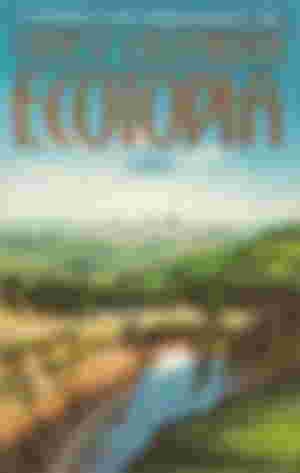
The ecotopian economy also seems to have taken on this brutal transition without too much damage, aided by massive public investments in research and development. The 20-hour week, for its part, removed any problem of unemployment for citizens who are all the happier and more creative in their work because they have a universal income guaranteeing them accommodation, food and access to healthcare, from the cradle to the coffin. .
"You don't pass the bulldozer over your mother's body"
Let us note one last avenue that Callenbach invites us to explore: in order to completely revolutionize a society in twenty years, the most important thing is perhaps first to overturn imaginaries. Throughout the book, in every Ecotopian, in every sector of activity and in every aspect of daily life, there is a renewed vision of nature and its relationship to human beings. The citizens have appropriated the myths of the Amerindians: they talk to the trees and cajole their wooden houses, treat nature like their mother: " You do not use the bulldozer on the body of your mother ", indignant one. 'them.
Survival Party
It also involves a radical shift in the way we project ourselves into the future. The issue is no longer progress but quite simply survival. Citizens are obsessed with the quest to return to " the state of balance ". For the ruling “Survival Party”, the revolution is “ the only hope for long-term enjoyment of stable and decent living conditions ”. “ This is a very important aspect of the book which is also linked to education , analyzes Brice Matthieussent. Traditional centers of excellence such as French or maths are replaced at school by creative and artistic activities. It induces completely different behaviors with nature and between people. "
If all of this seems as inconsistent to you as a blue flower bobo fad inherited from the worst sixty-eight clichés, don't worry. This was also the opinion of William Weston, the journalist featured in the novel. At least before his stay in Ecotopia. For others, the book will have the merit of rekindling the flame. The idea is not so much to propose a political program - undoubtedly too naive in certain aspects - as to maintain the existence of an alternative imagination. Dreaming of living in an Ecotopia is the first step for change. And perhaps the last hope for a world on the brink .
